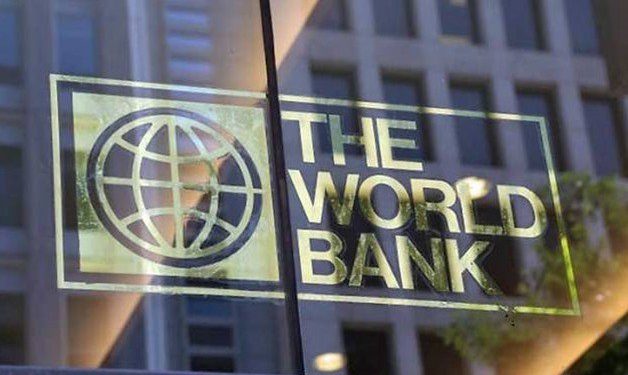The Next 25 Years Could Prove Decisive For Poor Countries, World Bank Says
The next 25 years could prove decisive in determining whether the world’s 26 poorest countries progress to middle-income status, a new World Bank analysis shows.
Home to more than 40 percent of people struggling on less than US$2.15 a day, these countries are the central focus of global efforts to end extreme poverty. Yet their progress has stalled amid heightened conflict, frequent economic crises, and persistently feeble growth.
Over the past 25 years, progress has mostly bypassed these countries, according to the analysis, which is featured in the World Bank’s forthcoming Global Economic Prospects report to be published on 14 January 2025. At the start of the 21st century, the World Bank classified 63 countries as “low-income.”
Since then, 39—including India, Indonesia, and Bangladesh—have entered the ranks of middle-income countries, meaning their annual per capita incomes were above US$1,145 by 2023.
The remainder, which were joined by South Sudan and the Syrian Arab Republic in the 2010s, have simply stagnated: on average, their inflation-adjusted GDP per capita has grown by less than 0.1% annually over the past 15 years. Barring a sustained improvement in growth rates, only six of today’s low-income countries are likely to achieve middle-income status by 2050, the analysis finds.
“The next 25 years are a critical window of opportunity for the poorest countries—and the rest of the world has a vital stake in helping them get out of poverty,” said Indermit Gill, the World Bank Group’s chief economist and senior vice-president for Development Economics.
“Today’s poor countries face a tougher slog than their predecessors: over the past 15 years, they’ve seen practically no growth in per capita incomes. Yet the record in East, Southeast, and South Asia shows that with a little help from abroad and better policies at home, even countries ravaged by war and instability can create the conditions for sustained economic progress.”
The World Bank analysis is the first to systematically examine the progress of today’s cohort of low-income countries in the first 25 years of this century and their prospects for attaining middle-income status over the next 25 years.
It finds that today’s batch—22 of which are in Sub-Saharan Africa—faces greater constraints than their predecessors. Seventeen of them are racked by conflict or fragility, with lethality rates 20 times the level in other developing economies. Nearly all are especially vulnerable to climate change. Most are either in debt distress or at high risk of it. Half are landlocked, bordered by other poor countries, which limits their ability to boost growth through trade.
Yet these countries also possess substantial natural advantages that could propel them to a higher standard of living. With more than 60 percent and 50% of the world’s known reserves of cobalt and graphite respectively, today’s low-income countries boast some of the largest known deposits of metals and minerals needed to generate and store renewable energy. Their potential for solar-energy production is among the highest in the world. In addition, working-age populations—a potent force for economic growth—are rapidly expanding in these countries even as they shrink almost everywhere else.
Nepal is one example of a landlocked formerly low-income country that succeeded in overcoming conflict to rise to middle-income status, the World Bank analysis shows. At the turn of the century, Nepal was in the throes of a civil war. Its per capita income was just US$220—making it one of the poorest of poor countries at the time. In 2006, it established a Comprehensive Peace Accord, supported by the United Nations and various foreign governments. Its per capita income subsequently grew more than fourfold, lifting it to middle-income status by 2019.
Rwanda is an example of a landlocked low-income country today that has overcome conflict to rise to the brink of middle-income status. It took about seven years after the 1994 genocide against the Tutsi for the country to establish the conditions for stability and economic growth, but once they were in place it grew rapidly.
In 2000, Rwanda’s per capita income was just US$270; today it is nearly four times that amount. Its growth was the result of ambitious policy reforms to stabilize the economy, encourage private enterprise, and build a substantial tourism industry. International debt relief and assistance programs also helped, allowing Rwanda to invest more in education and healthcare.
“The global battle to end extreme poverty will not be won until it is won in the 26 poorest countries,” said Ayhan Kose, the World Bank Group’s deputy chief economist.
“Today, these countries aren’t getting the attention they deserve, given the magnitude of their challenges. Many of them are coping with the triple harm of conflict, climate change, and debt distress. National policymakers and the global community should act urgently to enable these countries to make the progress necessary for them to join the ranks of middle-income countries.”
To climb the income ladder over the next 25 years, low-income countries can take inspiration from other poor countries that managed to leap to middle-income status in earlier decades, the analysis shows.
Girded by political stability and growth-supporting policies, about half of those countries achieved sustained growth accelerations—long periods of robust economic expansion—that propelled them out of low-income status.
These growth spells tended to follow reforms that channeled public and private resources into investment and improved the business environment.








